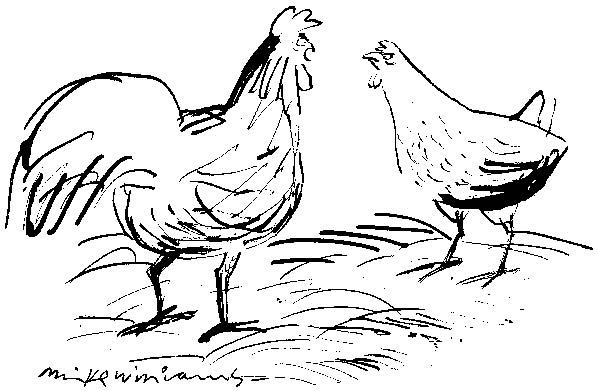England People Very Nice
Olivier
Toyer
Arts
It’s been a busy year for offence-junkies. Richard Bean’s new play has prompted anti-racism protests at the National. What for? The play is certainly racist in the narrow sense that it mocks the distinctions between races (or regions, for the most part, since Bean belongs to the same Aryan race as the Irish, French, eastern Europeans and Indians he mocks in this play). And he uses a strange device to pre-empt the outrage-vendors. We open in a detention centre where a group of asylum-seekers are, rather improbably, rehearsing a pageant that tells the history of migration to Britain. Cut to the play. The scene is Spitalfields, east London. From the 17th century onward we watch successive waves of immigrants as they face up to the prejudice, hostility and violence of the native population. The Huguenots, the Irish, the eastern European Jews, the Bangladeshis of the 20th century and finally, in recent years, the white yuppy refugees hounded out of Hampstead by their inability to raise a mortgage. Each incoming group struggles to modify itself to the culture of east London. There are jokes galore, some excellent, some a little frail. Try this. ‘Jews and Irish, that’s the worst type of intermarriage. You get a family of pissed-up burglars run by a clever accountant.’ Racist, yes, but more ribald than inflammatory.
This isn’t an outstanding play. It’s a good play, distinctly silly in places, and its historical scope deprives it of a storyline one can identify with until the second act. But it has a courageous mocking spirit and it brilliantly meets the NT’s brief, which is to foment debate without fear or scruple. Top marks for innovation as well. A tired old genre, the municipal pageant, has been transformed into a state-of-the-nation analysis. Nicholas Hytner, directing with his usual flair, manages yet again to make the Olivier work and creates the illusion that it’s a real theatre and not an aircraft hangar with some Odeon seating at one end. So is Bean a racist? Is Hytner? Maybe, just a smidge. Is that a big deal? Not at all. Unless you’re convinced all racists end up building gas chambers. And to make that assumption is to project a personal hang-up on to a social group you want to silence and eliminate because ignorance has made you fear them. The protestors clamouring for a ban are, in their fashion, xenophobic.
The Arts Theatre has reopened. Yet again! This time the biennial refurb has muted the foyer’s garish lights and turned the bar into a louche, shadowy little ‘boite’. It’s open to anyone and has the intimacy of a private club. Give it a try. The theatre’s new incarnation opens with Toyer, a drama adapted from a best-selling novel by Gardner McKay. This is an old-fashioned rep thriller in the mould of Sleuth, although it lacks that play’s inspired formal inventiveness. It starts with a needy, gay youngster Peter inveigling his way into the apartment of a female psychotherapist living alone in the LA hills. Now then, could this little Peter chap also be the psychotic genius, dubbed ‘the Toyer’, who’s been terrorising the city by drugging women and operating on their brains so as to leave them in a permanent coma while avoiding murder charges? A glance at the cast-list answers that question. Still, fans of the horror genre will find this a skin-pricklingly wonderful night out (I watched the scary bits through gaps in my fingers), and Al Weaver’s performance as Peter is a treat. A superb mime, he gives a masterclass in how to conjure a whole company of character actors from nowhere. One to watch.







Comments